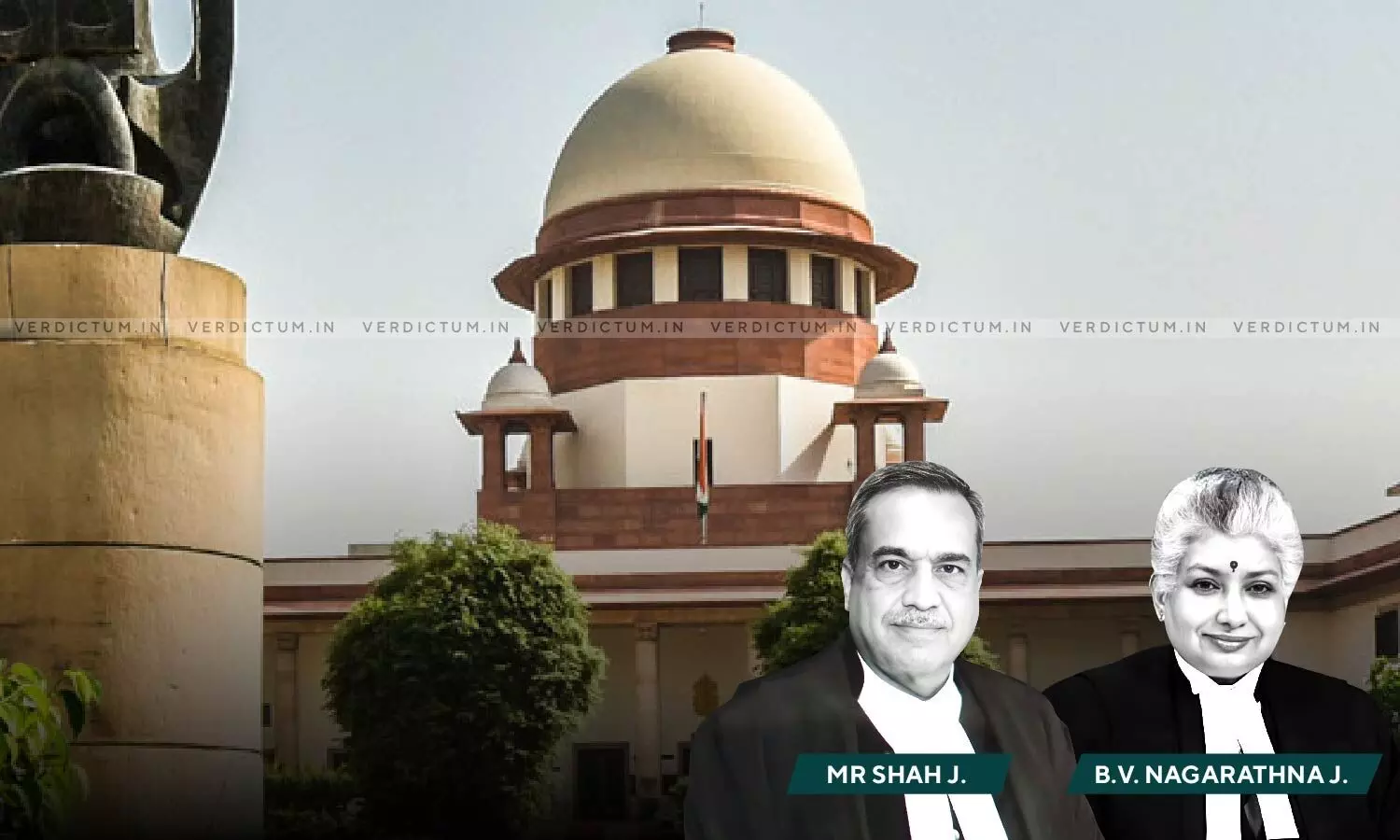
Selling Development Rights In Property Will Not Become Stock In Trade Merely On Basis Of Recording Of Inventory In Books Of Accounts: SC
 |
|The Supreme Court yesterday clarified that the moment the receipt of the amount is received and recorded in the books of accounts of the taxpayer unless shown to be refunded/returned, it is to be treated as income in the hands of recipient.
While observing that in order to adjudicate if a particular transaction is the sale of capital assets or business expense, multiple factors like frequency of trade and volume of trade as well as nature of transaction over the years are required to be examined, a Two Judge Bench of Justice M R Shah and Justice B V Nagarathna held that "merely on basis of recording of inventory in books of accounts, transaction of sale of development rights in a property would not become stock in trade".
ASG Balbir Singh and AOR Raj Bahadur Yadav appeared for the Appellant, whereas, AOR Gagrat & Company and Advocate Ujjwal A. Rana appeared for the Respondent.
In a brief background, the Respondent (taxpayer) entered into an agreement with one M/s Kirit City Homes Pvt. Ltd. for the sale of development rights in a property at Vasai. During the assessment, it was noticed by the Assessing Officer (AO) that sale receipts were not disclosed while filing the return. In response, the Respondent stated that the transaction was duly offered to tax in Assessment Year 2008-09, and claimed that it had entered into a rectification deed with the said party, whereby the value of the development rights was reduced. Regarding the applicability of the provision of Section 50C of the Income Tax Act, 1961, the Respondent stated that it had sold its stock in trade and not the assets. The AO, however, made the addition by treating the same as short-term capital gains in the hands of the Respondent.
When the matter reached the Income Tax Appellate Tribunal (ITAT), it was held that when the Respondent had shown the cost of land along with related expenditure as work in progress/inventory since 1999-2000, the AO had accepted the nature of business of Respondent. Therefore, ITAT concluded that what was sold by Respondent was part of its inventory and not a capital asset. The High Court also dismissed the appeal filed by the Revenue against the decision of ITAT, by holding that none of the questions proposed by the Revenue are substantial questions of law.
After considering the submissions, the Apex Court found that in the present case, the AO treated the transaction as capital assets, whereas, the ITAT reversed the said findings and held that the transaction was stock in trade.
The Apex Court further found that the AO has specifically recorded the findings on examining the balance sheets for the Assessment year 2006-07 to 2009-10 that there was not even a single sale during all these years and that there were negligible expenses and the transaction in question was the only transaction i.e., transfer of development rights in respect of land and consequently, it was held that the transaction was one of transfer of capital assets and not one of transfer of stock in trade.
However, the Bench noted that the ITAT after examining the opening and closing balance for the AY 1996-97 to 2007-08 observed that in multiple years, inventory was shown in the balance sheet, and without even discussing the claim of the Respondent agreed that the transaction in question is the sale of ‘stock in trade’.
Accordingly, the Bench opined that the ITAT has neither dealt with the findings given by the AO nor verified the total sales made by the Respondent during the relevant time and during the previous years.
Therefore, the Apex Court quashed the judgment passed by the High Court and remitted the matter back to the ITAT to consider the appeal afresh in accordance with law and on its own merits, while taking into consideration whether the transaction in question is the sale of capital assets or sale of stock in trade and other aspects.
Cause Title: Commissioner of Income Tax, Mumbai v. Glowshine Builders & Developers
Click here to read/download Judgment